Ready to embark on a flavorful adventure? Our comprehensive guide to foods that start with the letter K brings together a wide variety of ingredients, from common kitchen staples to unique, exotic delicacies. This K foods list offers a fascinating look at the diversity of ingredients, each paired with vivid images to inspire your culinary creativity. Whether you’re seeking foods that begin with K for a new recipe or curious about K-named foods from around the world, this guide has you covered. Expand your palate and discover the rich variety of flavors that start with the letter K!
1. Kabobs

2. Kabocha (Japanese pumpkin)

3. Kachori (Indian snack)
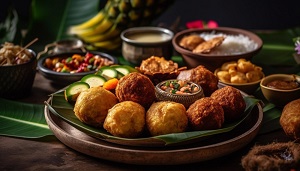
4. Kadai paneer (Indian dish)
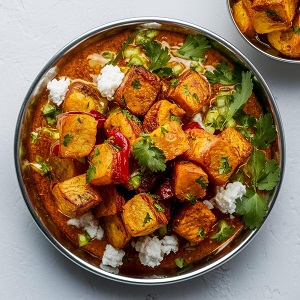
5. Kadhi (Indian yogurt-based soup)
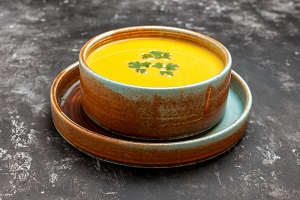
6. Kaffir lime
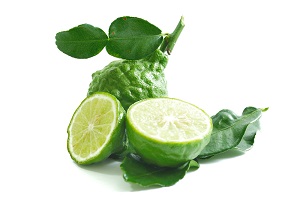
7. Kahlua

8. Kalakand (Indian sweet)

9. Kale

Kale is a type of leafy green vegetable that belongs to the cabbage family. It has dark green or purple leaves, and a slightly bitter and earthy taste. There are different types of kale, such as curly kale, Lacinato (dinosaur kale), and red Russian kale, each with a unique texture and flavor. It can be eaten raw in salads, sautéed, steamed, or added to soups and smoothies.
People love kale for its nutritional value, as it’s packed with vitamins like A, C, and K, as well as fiber and antioxidants. It’s considered one of the healthiest vegetables, offering numerous health benefits such as improving digestion and supporting heart health. Kale is a popular choice for those looking to eat more nutritious, plant-based foods.
10. Kale chips
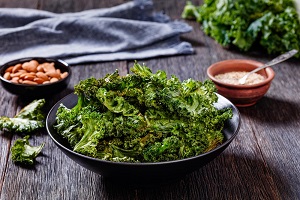
Kale chips are a crispy snack made by baking kale leaves after tossing them with olive oil, salt, and sometimes other seasonings. The leaves are baked at a low temperature until they become crunchy, offering a healthier alternative to traditional chips.
People love kale chips for their light, crispy texture and the nutritious qualities of kale. They’re a great source of fiber, vitamins, and minerals, making them a guilt-free snack. Kale chips are perfect for those looking to enjoy a crunchy snack without the added calories of regular chips, and they’re a popular choice in the world of healthy eating.
11. Kale salad
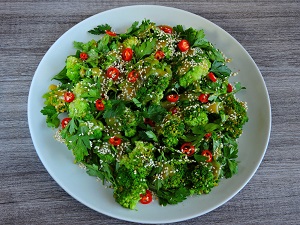
12. Kalimotxo (drink)

Kalimotxo is a popular Spanish drink made by mixing red wine and cola (cola soda). It’s typically served over ice and is a simple, refreshing beverage that is enjoyed especially in Spain and the Basque country. The drink is often enjoyed at casual gatherings, festivals, or barbecues.
People love Kalimotxo for its sweet and slightly tangy flavor, which balances the bitterness of the red wine with the sweetness of cola. It’s a budget-friendly drink and a fun, easy-to-make cocktail for those who enjoy a unique twist on traditional wine. Kalimotxo is often seen as a youthful, social drink that brings together the best of both worlds: wine and soda.
13. Kallumakkaya (mussels in Malayalam)

Kallumakkaya, known as mussels in Malayalam, is a popular seafood dish in Kerala, a state in southern India. The mussels are typically steamed, boiled, or fried, and often cooked with spices, onions, tomatoes, and coconut, giving them a rich and flavorful taste. They are enjoyed as a snack, appetizer, or as part of a main meal.
People love Kallumakkaya for its tender texture and savory taste, which is enhanced by the bold spices used in Kerala cuisine. Mussels are not only delicious but also nutritious, providing a good source of protein, iron, and omega-3 fatty acids. Kallumakkaya is a beloved dish in coastal regions of Kerala, often served in seafood restaurants or enjoyed at home with rice or appams.
14. Kamaboko (Japanese fish cake)

Kamaboko is a traditional Japanese fish cake made from fish paste, which is mixed with seasonings and then steamed or boiled. The fish paste is typically made from white fish, such as pollock or cod, and is often flavored with salt, sugar, and other seasonings. Kamaboko is commonly shaped into a log, sliced into thin pieces, and served in a variety of dishes like ramen, sushi, or as part of a bento box.
People love Kamaboko for its light texture and mild, savory flavor. It’s a versatile ingredient that adds depth and umami to many Japanese dishes. Kamaboko is enjoyed in both casual meals and festive occasions, such as New Year’s celebrations, where it symbolizes prosperity and good fortune.
15. Kambu (pearl millet)

Kambu, also known as pearl millet, is a nutritious grain that is widely consumed in parts of India and Africa. It has a mildly nutty flavor and a chewy texture, making it a versatile ingredient in both savory and sweet dishes. Kambu is rich in fiber, iron, and magnesium, and is often used to make flatbreads, porridge, or even fermented drinks.
People love Kambu for its health benefits, especially its ability to aid in digestion and provide a long-lasting energy boost. It’s a popular choice for people looking for gluten-free options or those seeking to incorporate more whole grains into their diet. Kambu is often used in traditional Indian recipes, such as kambu roti or kambu upma, and is known for its ability to keep you full and satisfied.
16. Kamikaze (cocktail)

The Kamikaze is a popular cocktail made with a simple mix of vodka, lime juice, and triple sec (or orange liqueur). It’s typically served as a shooter or in a small glass, with the ingredients shaken together and strained over ice. The drink has a tart, tangy flavor with a slight sweetness from the triple sec.
People love the Kamikaze for its bold and refreshing taste, offering a citrusy kick with a smooth finish. It’s a favorite at parties or bars, especially for those who enjoy a quick and zesty drink. The Kamikaze is known for its sharp and balanced flavors, making it a go-to option for a fun, lively cocktail experience.
17. Kampyo (dried gourd strips)

Kampyo is a type of dried gourd that is commonly used in Japanese cuisine. It is made from the long, thin strips of shiro gourd (also known as calabash gourd) that are dried and then rehydrated before cooking. Kampyo has a mild, slightly sweet, and earthy flavor, and is typically used as a filling in sushi rolls, especially in vegetarian sushi like kappamaki.
People love Kampyo for its unique texture, which is both chewy and slightly crunchy when rehydrated. It’s a good source of fiber and minerals and is often used in healthy, plant-based dishes. Kampyo is an essential ingredient in traditional Japanese cooking and offers a nutritious and flavorful alternative to meat in vegetarian sushi or other Japanese dishes.
18. Kanafa (Middle Eastern dessert)
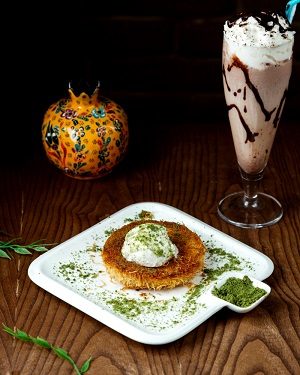
19. Kanapki (Polish open sandwiches)

20. Kanelsnegl (Danish cinnamon roll)
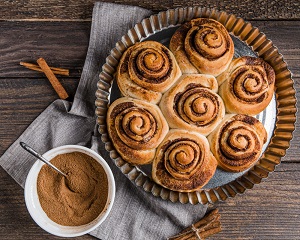
21. Kangkong (water spinach)
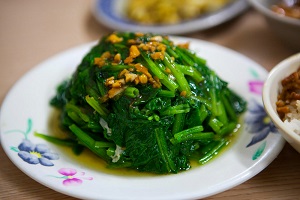
22. Kanji (Indian fermented drink)
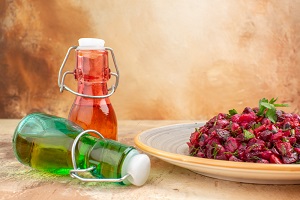
23. Kanom krok (Thai dessert)
24. Kansas City barbecue

25. Kaolin (edible clay, sometimes consumed for health or tradition)

26. Kapenta (dried fish)

27. Kapusniak (cabbage soup)
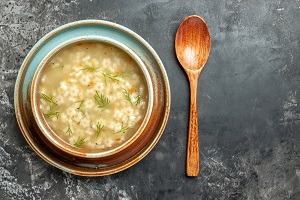
28. Karahi (Indian/Pakistani cooking pot and dishes cooked in it)
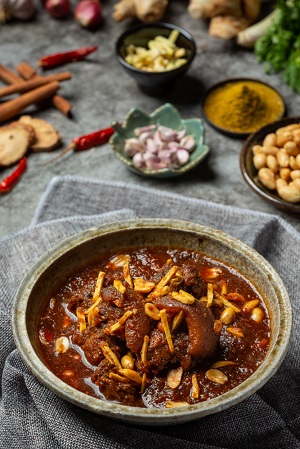
29. Kasha (buckwheat groats)
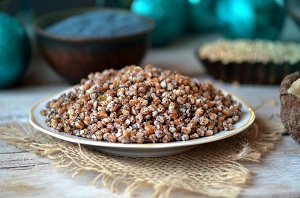
30. Kashk (fermented dairy product)

31. Kasseri (Greek cheese)

32. Katlama (Pakistani flatbread)

33. Katsu (Japanese breaded cutlet)

34. Katsu curry

35. Katsuobushi (dried bonito flakes)

36. Katte pongali (South Indian dish)
37. Katzelsuppe (German cat’s tongue cookies)
38. Kava

39. Kaymak (Turkish dairy product similar to clotted cream)

40. Kazandibi (Turkish burnt milk pudding)

41. Keema
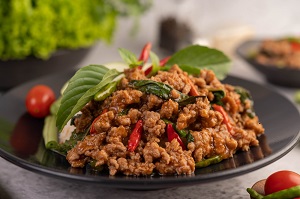
42. Kefir

Kefir is a fermented dairy drink that is similar to yogurt but has a thinner, drinkable consistency. It is made by adding kefir grains, a mixture of bacteria and yeast, to milk (cow, goat, or even plant-based milk) and allowing it to ferment. The result is a tangy, slightly carbonated drink that is rich in probiotics, which are good for gut health.
People love kefir for its creamy texture, refreshing taste, and numerous health benefits, including improving digestion and supporting the immune system. It’s often consumed plain, but can also be flavored with fruits, honey, or herbs. Kefir is a popular drink for those seeking a healthy, fermented beverage, and is enjoyed around the world, especially in Eastern Europe and Central Asia.
43. Ketchup

44. Key lime pie
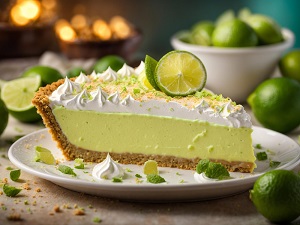
Key lime pie is a classic American dessert that originated in the Florida Keys. It is made with a graham cracker crust, a tangy lime filling, and is topped with a layer of whipped cream or meringue. The filling is typically made with key lime juice, sweetened condensed milk, and egg yolks, giving it a creamy and tart flavor.
People love Key lime pie for its perfect balance of sweetness and tartness. The rich, creamy filling combined with the crisp, buttery crust makes it a refreshing treat, especially in warm weather. It’s a popular dessert for special occasions, summer gatherings, and family meals, often evoking the sunny, tropical vibe of the Florida Keys.
45. Kidney beans

46. Kielbasa

47. Kimchi

48. King crab
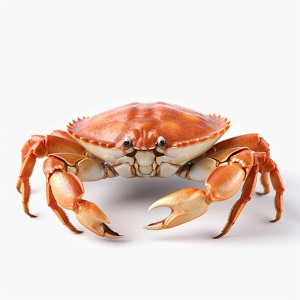
49. Kingfish

50. Kipper snacks
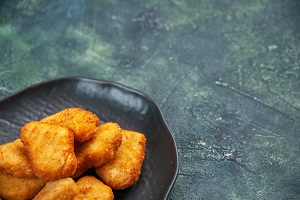
51. Kippers

52. Kirsch

53. Kissel

54. Kit Kat

55. Kitchen sink cookies

56. Kitfo

57. Kiwano (horned melon)

58. Kiwi

59. Kiwi smoothie
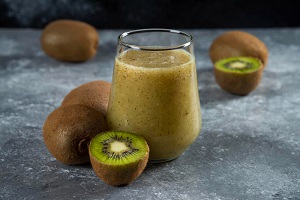
60. Knackwurst

61. Knish
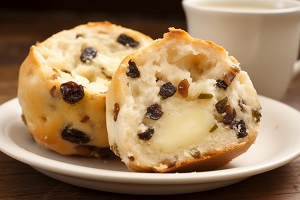
62. Knockwurst

63. Knotweed

64. Kofta
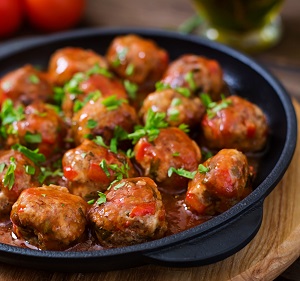
65. Kohlrabi
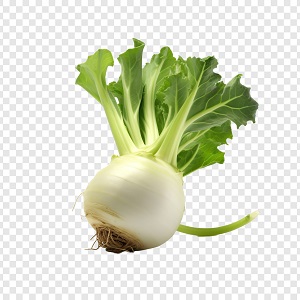
66. Koji

67. Kokam

68. Kolache

69. Kolbasa

70. Kombu
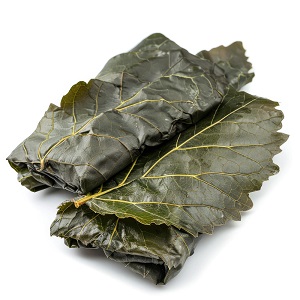
71. Kombucha

72. Konjac
73. Konnyaku (a type of jelly)
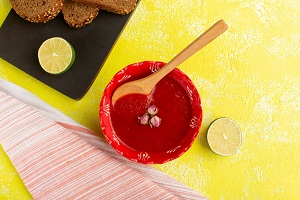
74. Korean barbecue

75. Korean pear
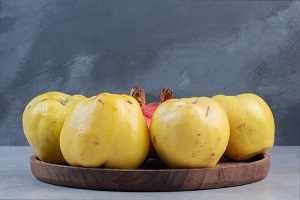
76. Korma
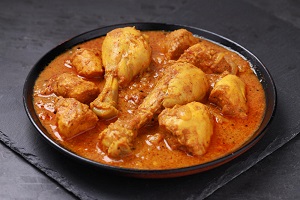
77. Kosher dill pickles

78. Kosher salt
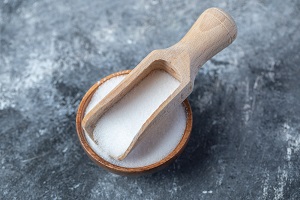
79. Kotlet (Persian meat patties)
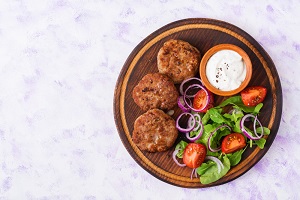
80. Kouign-amann (Breton pastry)
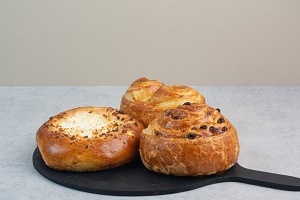
81. Kourabiedes (Greek cookies)

82. Kraut (short for sauerkraut)

83. Kringle (Scandinavian pastry)

84. Krispies (as in Rice Krispies)
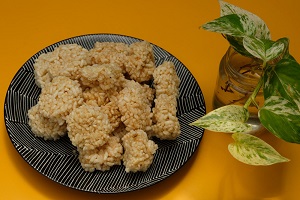
85. Krupuk (Indonesian crackers)

86. Kuchen (German cake)

87. Kudzu

88. Kugel

89. Kugelhopf

90. Kulfi (Indian ice cream)

91. Kumera (sweet potato in Maori)

92. Kumquat
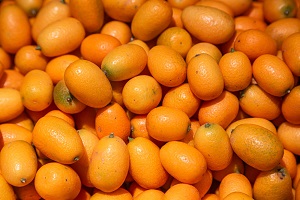
93. Kung Pao chicken
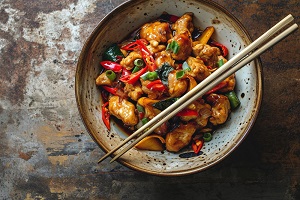
94. Kurrat (Egyptian leek)
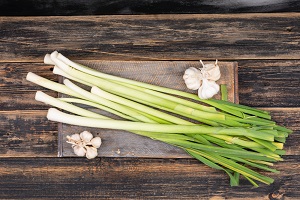
95. Kushari (Egyptian dish)
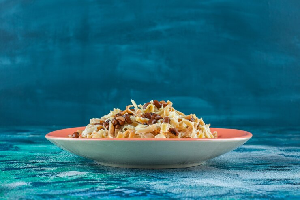
96. Kutia (Eastern European wheat dish)
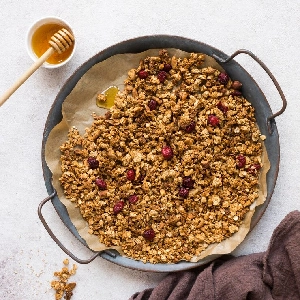
97. Kvass
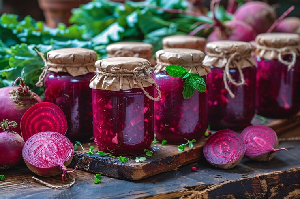
98. Kvetch (Yiddish for complaining, sometimes used for foods too tart or bitter)
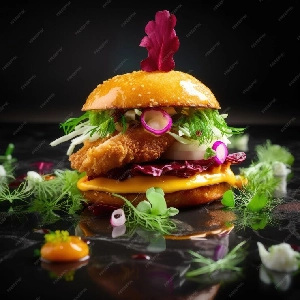
99. Kway teow (rice noodles)
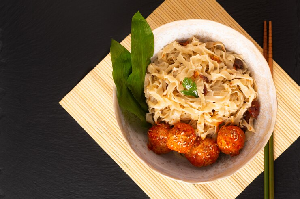
100. Kyoho grapes
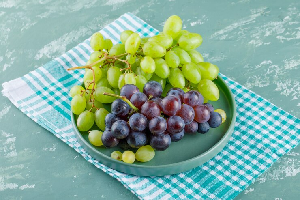

Jean Smith is a fitness enthusiast and blogger who focuses on fitness and a healthy lifestyle. She is passionate about assisting people in living healthier lifestyles and is constantly on the lookout for new and creative methods to stay fit and healthy. Her articles are excellent resources for anyone interested in improving their health and fitness.
